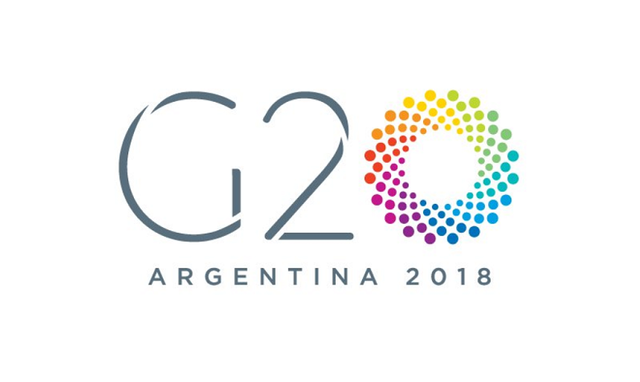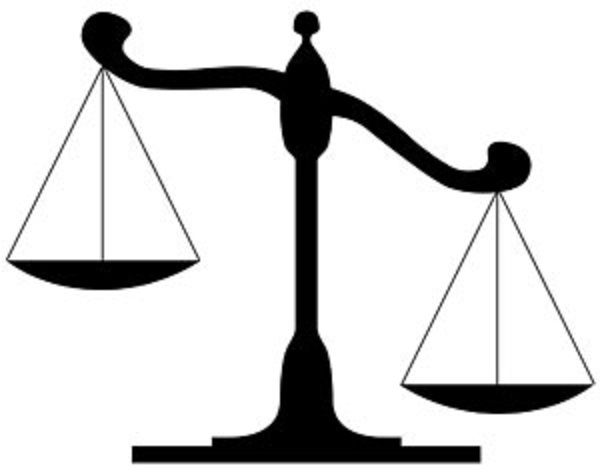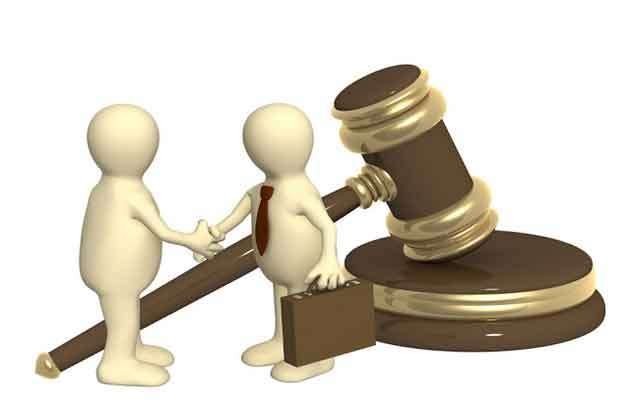TO REGULATE OR NOT TO REGULATE? That is the question...
There was a near complete turn-around in the "news" coming out of last week's G20 (Group of 20 Top Economies) meetings on the topic of To Regulate or Not to Regulate CryptoCurrencies. So I thought I'd take a bit of a dive into this topic.
The First G20 Meeting of Finance Ministers and Central Bank Governors of 2018, took place early last week at the Buenos Aires Exhibition & Convention Centre (CEC), Argentina. At the conclusion Argentine Treasury Minister, Nicolás Dujovne, and Central Bank President, Federico Sturzenegger, jointly expressed the importance of international trade as a crucial factor for development.
Reuters first broke the NO NEW CRYPTO REGULATIONS news during the G20 meetings that the Financial Stability Board (FSB), which coordinates financial regulation for the G20 (Group of 20 Top Economies), resisted calls from some G20 members to regulate cryptocurrencies like bitcoin. They reported that the global watchdog that reamed a barrage of banking and market reforms down the throat of the global community after the 2008 financial crisis would move more toward reviewing existing rules and away from designing new ones. This gave the cryptocurrency market much needed breathing room and helped move Bitcoin up by $1000.
At the end of the meetings Reuters then reported a complete flip-flop in news that they would instead delay to another meeting in July to give the ministers time to draft NEW REGULATION proposals. This triggered somewhat of another pull back in the crypto markets again, which have generally been moving sideways ever since to the time of writing this (Monday, Mar. 26, 2018). Although, I should note the financial markets around the world took a heavy beating the last days of last week, because of Pres. Trump's new Trade War with China, which has some effects as well.
TO REGULATE OR NOT TO REGULATE? That is the question...
There has been a lot of discussion on this topic everywhere. In one friend's post he said in response to a comment I made there, "Current environment doesnt encourage big players to invest in this market. Uncertainty is not a way to encourage them." -- @crypto.piotr
I agree this is certainly part of what's happening now. It appears to me that the G20 Finance Ministers and Central Bank Governors intentionally created this uncertainty, giving out such near complete opposites in the news, because they know that if too much money moves out of their Fiat control and into crypto, it will collapse their monetary system sooner than they are ready for. So they seem to me to be buying time, trying to hold investors back through their control polarizing the media, until they can create their own centralized cryptocurrency to force it on the masses, as they do with their other state-run Fiat currencies.
I'd like to believe reason will win out in this debate, but who knows, given their track record and addiction to centralized control. I am an optimist by nature and so I believe that somehow there's a way where we can all win out, including them. :) If we can all take a step back and put it all into perspective, I believe it is easier to see that the key itself lies within the potential of decentralized blockchain technology.
Decentralized Blockchain Technology
Decentralized Blockchain technology is similar in so many ways to the rise of internet technology and it is my view that regulators should follow the same path as they did with the internet in it's early days.
When Pres. Clinton signed into law the 1998 Internet Tax Freedom Act on October 21, 1998, it had clear cut purpose as an effort to promote and preserve the commercial, educational, and informational potential of the Internet. It did just that, especially over the course of the following 9 years. The law bared federal, state and local governments from taxing Internet access and from imposing discriminatory Internet-only taxes such as bit taxes, bandwidth taxes, and email taxes. It also bared multiple taxes on electronic commerce. That moratorium, leaving the internet alone to allow it to develop unencumbered, was certainly one of the main driving forces which grew the internet out the way it did, which also grew the global economy in so many positive ways.
Yes, there was the "Dot Com" crash in the tech sector during that time, which separated the wheat from the shaft to give us some of the largest most influential companies in the world today, such as Google, Amazon, etc.; but with the clear-cut hands-off moratorium on regulating and taxing the internet the overall market powered on through it. That was until it's major pull back, along with everything at the end of 2007 and 2008, when global markets all crashed so intensely.
And look at what the 2008 Financial crisis did. Those in power rewarded the very ones who caused the crash to begin with at the expense of a whole slew of new regulations on the masses. Pres. Obama tripled the US National Debt during his 8 years in office, which had taken previously well over 200 years to accumulate. It looked then like it may be the end of the entire global financial system.
The Rise of Decentralized Blockchain Technology
In the wake of that, out of the ashes began to rise bitcoin and decentralized blockchain technology that was designed primarily as an feasible alternative to the fallible authoritarian centralized power structure, built on debt, in order to give that power of choice back into the hands of where it belongs - the people.
Decentralized blockchain technology is like internet 2.0 and so much more too. It has become a term that captures the imagination and fascinates many, as the implications of such technology are truly profound. For the first time in human history people anywhere can trust each other and transact within large peer-to-peer networks without centralized management. Trust is established, not by centralized institutions, but by protocols, cryptography and computer code. This greatly strengthens our capacity for collaboration and cooperation between organisations and individuals within peer networks, enabling us to potentially form global networks of collaboration without centralized formal institutions. This is unprecedented, but hugely relevant, in an age of globalization and a new set of 21st century challenges that require mass collaboration.
Decentralized blockchain technology is a complex technological economic and social phenomenon. It calls into question what might have seemed to be established parameters of the modern world, like currency, economics, trust, value and exchange. To make sense of this, one needs to understand it in a holistic context; all the way from its technicalities to it's aspirational potential.
In Conclusion - My Suggestion:
So if what was essentially "NO REGULATIONS" worked so well with the internet, why not give this new technology a real chance to breathe and really see how far it can go to improving the lives of the global community? My suggestion is to aim to make a clear cut agreement at the G20 level to keep any regulations which may touch this technology as absolutely simple and clear-cut as possible. They should set a purpose for their agreement to be to promote and preserve the commercial, educational, and informational potential of Decentralized blockchain technology. That should be of the highest aim. This should be a time to really brainstorm new applications and develop them as far as they can go unencumbered by a slew of regulations, which in so many ways tie the hands of those working so hard to develop these technologies. We should welcome the dawning of this new technology that strengthens our capacity for collaboration and cooperation by doing just that - collaborate and cooperate for the betterment of humanity as a whole.
A few other posts I've shared on steemit:
BELIEVE IN YOURSELF
Happy World Poetry Day!!!
International Day Of Happiness
Surfing (Living on the Edge) Pics
Remembering Who We Really Are - Part 1
Remembering Who We Really Are - Part 2
ANCIENT ADVICE for MODERN TIMES #1
ANCIENT ADVICE for MODERN TIMES #2
ANCIENT ADVICE for MODERN TIMES #3
ANCIENT ADVICE for MODERN TIMES #4
ANCIENT ADVICE for MODERN TIMES #5
ANCIENT ADVICE for MODERN TIMES #6
ANCIENT ADVICE for MODERN TIMES #7
ANCIENT ADVICE for MODERN TIMES #8
ANCIENT ADVICE for MODERN TIMES #9
ANCIENT ADVICE for MODERN TIMES #10
ANCIENT ADVICE for MODERN TIMES #11
Research Predicts $91,000 By March 2020 for Bitcoin
REMEMBER YOUR DREAMS OF THE HIGHEST DEGREE
Empathize - Connecting with How Others Think and Feel
How to Empower Your Business - Focusing on Your Customers
GRATITUDE IS AN INSTANT REMEDY TO ILLUSIONS OF LACK
Whatever the Mind Can Conceive and Believe the Mind Can Achieve.
Why Stellar Lumens (XLM/STR) is One of My Favorite Crypto Currencies
Have an awesome day :)
Follow me: @positivesynergy










It's a very valuable post. Decided to resteem (my first time ever) :D
Thank you so much, @crypto.piotr ! I really do appreciate it.
Im glad to see that you took a dive into this topic, as I really put so much interest into this particular g20 summit.
We already know each others opinion quite well, so let me just summarize that Im grateful that you decided to write it all down. Great piece of work.
I wish we would have Clinton instead of Trumph, but what to do. At least Chinese president seem to be wise. Anyway that's off-topic. sorry
Obviously upvoted.
Thanks, @crypto.piotr ! I really appreciate the input.
I still feel there is so much more I could have said and put into this subject as well. On that subject I also wish we could have Clinton now as well. Although, I really wonder if he'd still push for and win enough support for the it now, given how many things have changed over the decades.
Have a great day :)
Ok, but HOW are they ever hoping to regulate decentralised web, or things like Steemit. Self-regulation? Community chiefs maybe? It's like trying to regulate piratebay, (which is still up and running). ...
Hi, @ade-greenwise :)
I know it's all a huge complicated mess. As far as if they ever want to regulate decentralized web too, that's an even far more complex question. I would still tend to fall on the side of Freedom of the Press and Liberty, even given the extent at which "freedom of the press" (or whatever semblance we have to it) can sometimes go these days. At least with "self regulation" we ourselves have the power to choose to turn the station or go to another site. Who knows, though, how all that will play out.